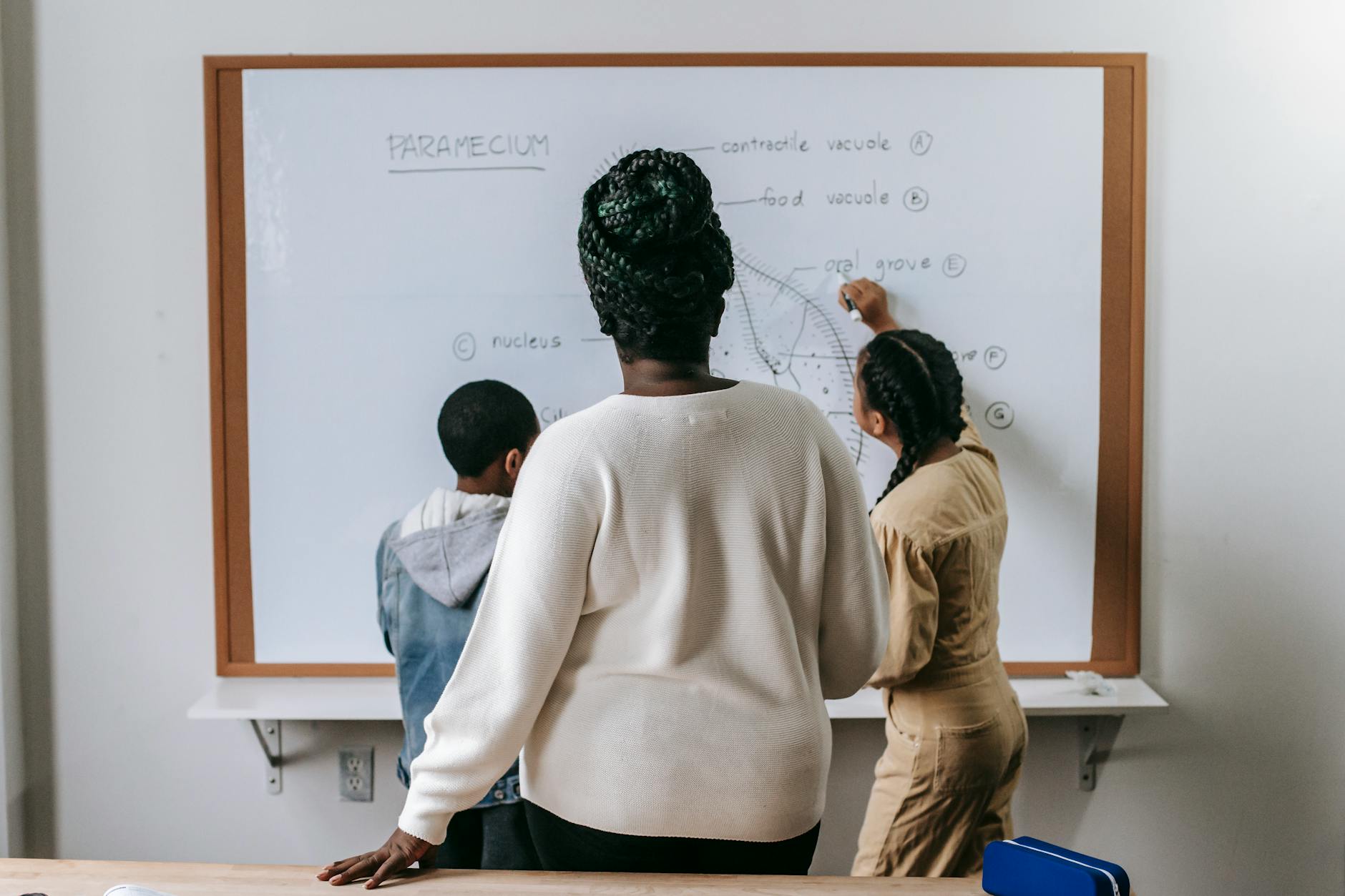How to Incorporate Community Services in Vocational Education in Australia

Align Community Services with Vocational Goals
Blending community services with vocational training offers an enriching learning landscape that extends beyond traditional classroom teachings. One advantage lies in integrating child care courses as part of trades education, encouraging students to develop empathy and interpersonal skills. This is not just an abstract concept; it's a practical and impactful approach being implemented through community service projects in places like Brunswick. These projects provide students a real-world context where their skills make a tangible difference, fostering both personal and professional growth.
To lay a solid foundation for this integration, I employ 'integrated teaching strategies'. These strategies involve designing programs that meet the dual objectives of vocational proficiency and social responsibility. For instance, we can incorporate a Certificate IV in Mental Health, which equips students with knowledge beneficial in almost any work environment, including construction and trades. Such mental health initiatives have been pivotal, as seen in Fitzroy's local programs, enhancing students’ capacity to handle various workplace scenarios.
The University of Melbourne's teaching facilities have been instrumental in shaping such methodologies, offering state-of-the-art resources that align with Australian educational standards. Here, the focus is on crafting modules that not only teach technical skills but also prepare students to be community-conscious citizens. This approach ensures that by the end of their study, students are well-rounded, employable, and ready to contribute meaningfully to society.
Designing Community-Centric Programs
Creating vocational programs enriched with community service elements is pivotal for fostering well-rounded education. These community services courses not only deepen the learning experience but also enhance social skills. In Melbourne, initiatives can take cue from community service projects in Brunswick that successfully blend practical skill-building with community engagement.
Elements of Effective Community Engagement
To design effective community-centric programs, it's essential to incorporate integrated teaching strategies. Start by identifying local needs and aligning them with your vocational curriculum. This can involve connecting with local organisations and understanding their challenges. Offering hands-on involvement can help students develop empathy and practical problem-solving skills.
Structuring Apprenticeships with Service Learning
Structuring apprenticeships to include service learning means incorporating tasks that directly benefit the community while providing real-world experience. A clear example is the blend of early childhood education projects within existing construction courses, promoting a multidisciplinary approach. This can be implemented by setting up partnerships with local schools or child care centres.
Partnering with Local Organizations
Effective partnerships with local bodies, such as mental health initiatives in Fitzroy, provide invaluable resources and opportunities for students. Creating a network with these organisations allows students to engage in their projects while gaining insight into societal needs. It equips them to face real-world scenarios with practical knowledge and confidence.
By weaving community service into vocational training, educators can offer students a complete package that extends beyond technical skills. This method ensures students are equipped to contribute positively to society, fostering a holistic development path.
Implementing Community Service Components
Step-by-Step Program Integration
Creating an apprenticeship program that marries technical prowess with community service requires strategic planning. Start by assessing the available resources, including facilities like "the University of Melbourne's teaching facilities", where community service projects can foster practical engagement. Align these resources with the learning objectives of courses like the diploma of community services, ensuring that the curriculum is seamless and cohesive.
Next, clearly define the roles and responsibilities of both educators and students. Consider integrating the principles found in programs such as the cert 3 in individual support, focusing on developing skills that enhance community wellbeing. This will instil a sense of purpose and responsibility among students while equipping them to handle real-world scenarios efficiently.
Training Educators in Community Service Pedagogy
For programs to succeed, educators must be adept at incorporating service learning into their teaching strategies. Workshops focusing on "integrated teaching strategies," perhaps centered around community service projects in Brunswick, can provide valuable insights for refining pedagogical approaches. Engage educators with practical activities that reflect real community challenges, promoting innovation and adaptability.
Monitoring and Evaluating Program Success
Evaluating the success of community service components is crucial. Create metrics that capture both skill development and societal impact. Feedback from students and educators on mental health initiatives in Fitzroy, for example, can provide qualitative data to refine the curriculum further. Regular assessments will ensure that the program continues to meet educational standards while adapting to evolving community needs.
Enhancing Student Experience
Building Social Skills Through Service
In my experience, weaving community service into vocational training goes beyond imparting practical skills. It’s about cultivating a versatile skill set. For instance, engaging students in community projects helps nurture essential social skills. Encouraging participation in service learning projects can provide learners with opportunities to communicate effectively, collaborate, and problem-solve in real-world scenarios. In my practice, projects often involve collaboration with local initiatives directly linked to students’ fields of study, such as organizing volunteer activities in Brunswick's community service projects.
Addressing Mental Health in Trades Education
Addressing mental health is another pivotal aspect of enhancing student experience. In today’s educational landscape, it’s crucial to integrate programs that foster mental well-being. As someone focused on vocational training, I've seen the benefits of incorporating elements from a diploma in early childhood educationF into modules. This brings a focus on the importance of emotional intelligence and resilience, vital skills for tradespeople. Linking these insights to initiatives similar to those found in Fitzroy could offer students layers of support.
Encouraging Student Reflection and Growth
Reflective practice is core to student development, providing space for personal and professional growth. I advocate for integrated teaching strategies that prompt reflection post-project, encouraging students to evaluate their performance and learning correctly. Techniques such as guided discussions and reflective journals after completing initiatives like a cert 3 childcare course can magnify student engagement and understanding.
In conclusion, through thoughtful integration of community service and teaching innovations, we can profoundly enhance student experiences, preparing them not just for jobs, but for a balanced professional life.
Challenges and Best Practices
Navigating Bureaucracy
In our quest to integrate community service within vocational training, we often encounter bureaucratic hurdles. It's essential to weave administrative frameworks with creativity. Engage with community dental clinics and local councils, facilitating partnerships like those forged within community service projects in Brunswick. When developing programs, anticipate compliance requirements early, aligning them with the expectations set forth by the University of Melbourne's teaching facilities. Such proactive measures streamline approvals, allowing our educational initiatives to flourish seamlessly without the red tape.
Ensuring Resource Allocation
Ensuring robust resource allocation is a cornerstone of sustainable program success. Access funding through local government grants, private sector sponsorships, and collaborative ventures with non-profit entities. The effectiveness of practical learning modules can be amplified by utilising state-of-the-art facilities, much like the mental health initiatives in Fitzroy that serve as prime exemplars of innovative resource utilisation. Staying abreast of funding opportunities requires constant networking and creative advocacy.
Disseminating Effective Strategies
Sharing effective strategies within our professional networks is critical. Initiate dialogues at educational symposiums and through digital platforms where experiences and outcomes can be exchanged. For instance, discussing integrated teaching strategies at forums enables educators to benefit from a wealth of shared knowledge, drawing from community-driven projects and vocational training paradigms. Such interactions empower us to adapt successful approaches, directly enhancing our teaching dynamics and increasing the efficacy of loans for community service education. By collaboratively navigating challenges, we forge pathways to enriched learning environments for our students.


